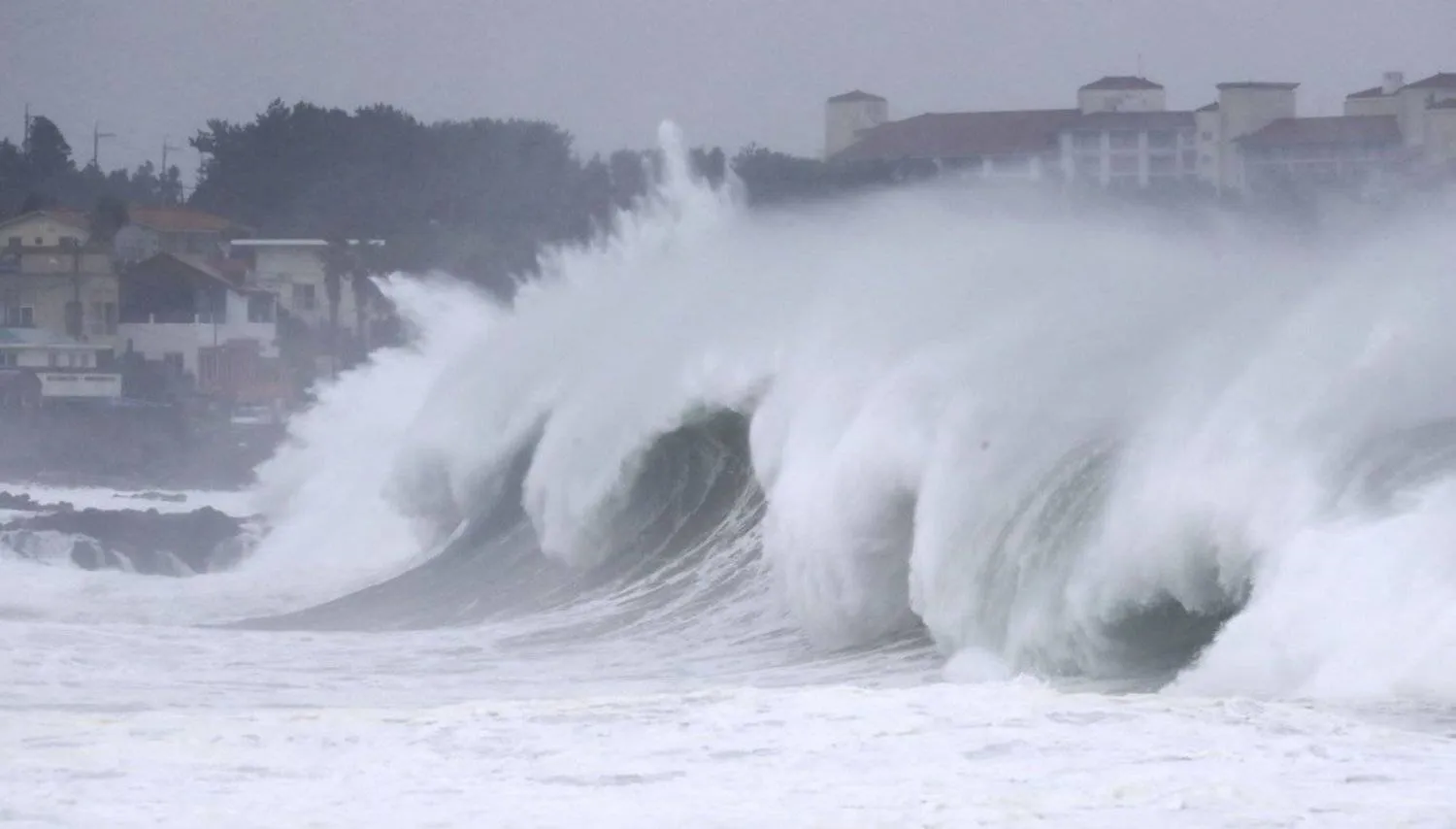A slow-moving storm has been dumping intense rains on northern Japan, swelling rivers, sending residents to shelters and disrupting traffic during a Japanese Buddhist holiday week.
The storm was once Typhoon Maria but has weakened, with winds now blowing up to 72 kph (45 mph). It made landfall near Ofunato City in Iwate prefecture Monday morning and was expected to cut across the Tohoku region as it moved northwest at 20 kph (12 mph), according to the Japan Meteorological Agency.
The Fire and Disaster Management Agency said no damage or injuries were reported so far, but authorities have cautioned about the risks of flooding and mudslides from a relatively rare storm in the region and advised 170,000 residents in Iwate and neighboring Aomori and Miyagi prefectures to go to shelters. Iwate prefecture said about 2,000 people actually took shelter early Monday, The Associated Press said.
Prime Minister Fumio Kishida vowed that the government would quickly provide information and support to residents in the affected areas.
The prefecture started an emergency controlled release of water into a river to keep a dam from overflowing, calling on about 8,300 riverside residents in the towns of Osanai and Kuji to take shelter due to possible flooding from the discharge.
Up to 46 centimeters (18 inches) of rain has fallen over the past two days in the Iwate city of Kuji and up to 25 centimeters (9.8 inches) more rain is forecast through Tuesday morning.
Footage on NHK public television showed muddy water gushing down a swollen river in the town of Iwaizumi, where nine people died at a riverside nursing home in flooding caused by a typhoon in 2016. This storm is the first to make landfall in the Tohoku region since the 2016 typhoon.
A woman who was at a Iwaizumi shelter told NHK that she came early as she learned a lesson from the last typhoon, which destroyed her house.
The storm was affecting travel during the Obon holiday period in which people commemorate their ancestors. A number of local trains were suspended, and domestic flights at several area airports have been suspended or delayed.
Storm Dumps Intense Rainfall on Northern Japan, Sending Some People to Shelters

File photo: High waves crash a shore as Typhoon Maysak approach on Jeju Island, South Korea, Wednesday, Sept. 2, 2020. (AP)

Storm Dumps Intense Rainfall on Northern Japan, Sending Some People to Shelters

File photo: High waves crash a shore as Typhoon Maysak approach on Jeju Island, South Korea, Wednesday, Sept. 2, 2020. (AP)
لم تشترك بعد
انشئ حساباً خاصاً بك لتحصل على أخبار مخصصة لك ولتتمتع بخاصية حفظ المقالات وتتلقى نشراتنا البريدية المتنوعة







